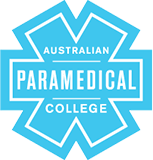Course providers in Gold Coast
The following providers offer the HLT51020 Diploma of Emergency Health Care in Gold Coast.Entry requirements
Entry requirements set by ASQA are the basic qualifications and criteria that students must meet before enrolling in a nationally recognised course.
These requirements ensure students have the skills and knowledge needed to undertake this course.
- There are no formal academic requirements
- Additional entry requirements are set by individual course providers
Course fees
The estimated fee reflects the price range across training providers in Gold Coast.
The course fee is determined by each individual provider and may vary depending on factors like study mode and student support availability.
Career opportunities
The Diploma of Emergency Health Care will prepare you for the following roles.
Emergency Medical Technician
An Emergency Medical Technician (EMT) provides health care in emergency situations. You might work for an ambulance service and respond to 000 call...
Emergency Services Officer (ESO)
An Emergency Services Officer (ESO) responds to emergency situations on a work site. You’ll ensure everyone on site is safe and accounted for and a...
Ambulance Transport Attendant
An Ambulance Transport Attendant transports patients to and from medical facilities, ensuring their comfort and safety while monitoring their condi...
Patient Transport Officer
A Patient Transport Officer transfers patients to medical care in non-urgent situations. You might take people from their home to hospital or move...
Paramedic Assistant
A Paramedic Assistant supports paramedics with emergency care, patient transport, and equipment preparation.
You’ll need to stay calm under p...
Aviation Medic
An Aviation Medic travels by air to provide emergency medical treatment. You might respond to medical issues in remote areas, emergency situations...
Industrial Medic
An Industrial Medic provides emergency health care at work sites in remote locations. You might be stationed at a mine site, oil rig or other isola...
Find a course provider
Compare all providers for the available in Gold Coast to find the right fit for you.
More about Diploma of Emergency Health Care
For individuals seeking to establish a rewarding career in emergency services, the Diploma of Emergency Health Care is a crucial qualification. In the Gold Coast region, there is one prominent training provider, the Australian Paramedical College, which offers this course via an online delivery mode. This flexibility caters to the diverse needs of students, allowing them to balance their studies with other commitments while preparing to enter the dynamic field of emergency health care.
By enrolling in the Diploma of Emergency Health Care, students embark on a journey that prepares them for various roles within the healthcare landscape. Graduates can aspire to positions such as a Volunteer Firefighter, which is essential for community safety, or an Emergency Medical Technician, a role that can be pivotal during critical incidents. This qualification not only equips students with theoretical knowledge but also provides practical skills that are indispensable in high-pressure situations.
The diverse career pathways available to diploma holders extend to roles including Patient Transport Officer and Emergency Medical Dispatcher, both of which are vital in ensuring safe and effective patient care. Additionally, those who complete the diploma may find opportunities as an Emergency Services Officer (ESO) or an Ambulance Service Paramedic, which require specialised skills in emergency response.
Moreover, the course provides the foundational training necessary for advanced roles such as an Acute Care Nurse and a Critical Care Nurse. These positions are essential for delivering high-quality care in acute medical settings and contribute significantly to patient outcomes. Graduates may also pursue careers as a Paramedic or Critical Care Paramedic, roles that require both advanced medical knowledge and the ability to make rapid decisions in life or death situations.
Additionally, the realm of emergency management offers exciting opportunities for diploma graduates, such as serving as an Emergency Management Coordinator or an Emergency Response Specialist. These positions focus on planning and coordinating emergency responses, showcasing the diverse applications of the Diploma of Emergency Health Care. In the vibrant community of Gold Coast, this diploma opens the door to numerous fulfilling career paths, solidifying its importance for those aiming to make a difference in emergency health care.


